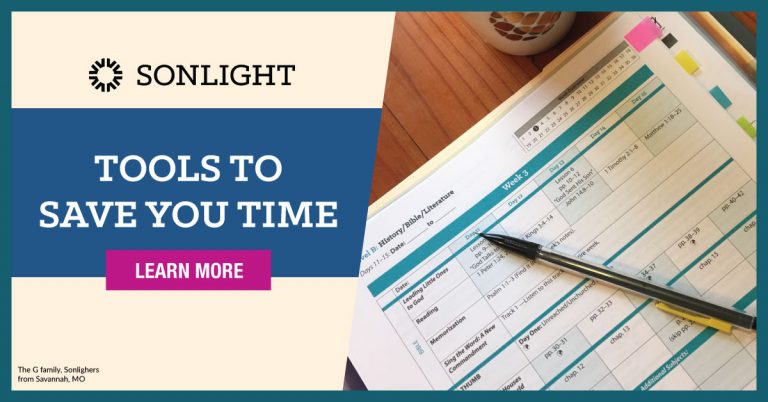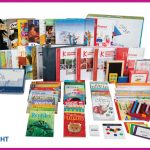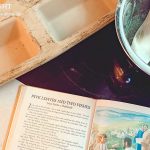
Young children tend to have great memories, and can often memorize things faster and easier than older children or adults. This summer is a great time to work on memorizing key information with your child, as a way to keep their minds active, and provide a great resource for later years when they will need this information.
Keep in mind, memorization works best when children learn small bits of information at a time. So, instead of trying to memorize everything on the list, or memorize large amounts of information, start with small nuggets, such as one phone number, and then gradually add to it over time, such as adding a second phone number once the first phone number is complete.
Tip: Use Music
My favorite way to help children memorize information is to use educational songs, but not everything can be found in music form. If you have musically talented individuals in your family, see if they can set your phone number to the tune of a simple song or create their own songs.
Tip: Create a System
I like to use index cards and book rings to create my own flash card sets. I simply punch a hole in the top corner of some index cards, and then using different colored cards, markers, or highlighters, color code the cards to different types of information. I create 3 rings.
- Ring A is for new things we are memorizing. We read through these each day, out loud together.
- Ring B is for things we have already memorized. We review this set of cards on days when we have more time, but not daily.
- Ring C is for things I want to work on in the future.
As soon as we can recite information 3 days in a row without mistakes, it moves Ring A to Ring B. Then, we choose another card to move from Ring C to Ring A. The rings make it easy to flip through and find information.
Eventually, I feel absolutely confident that we have memorized everything we need to from a card, and that card gets removed from the rings and placed in a drawer to wait for the next child.
Personal Information to Memorize
- Their full name
- Parents' full names
- Complete address
- Parents' full telephone number
- The full name and phone number of at least one emergency contact
- The name of the place each parent's workplace
- The names of all of their allergies, medications (and dosages, for older children) and/or medical conditions and those of their siblings/parents, if needed
- Emergency numbers (911, but if you live in or are travelling to other countries, this number may be different)
- Emergency meeting place in case of disaster/fire
- Birth date and/or social security number
Kindergarten Basics to Memorize
- Days of the week
- Months of the year
- Colors of the rainbow
- The 3 states of matter
- Traffic light colors (green for go, yellow for slow, red for stop)
- Seasons of the year
- Shapes (trapezoid, sphere, etc)
- Major holidays
- Thirty Days Hath September poem
- Right hand/left hand
History/Geography Facts to Memorize
- States and capitals
- Names of presidents (or prime ministers or other rulers)
- Kings and queens of England
- Countries and capitals
- The Seven Wonders of the World (ancient and modern)
- Continents and oceans
- Directions on a compass
- The Declaration of Independence
- The Preamble to the Constitution
- Favorite famous speeches (I Have a Dream from Martin Luther King, Jr., The Gettysburg Address, Susan B. Anthony’s speech after being arrested for voting, etc.)
English Facts to Memorize
- Vowels
- Parts of speech
- Definition of each part of speech
- List of prepositions
- List of pronouns (possessive, subject, object)
- Coordinating conjunctions
- Subordinating conjunctions
- Articles
- How to spell the 1000 most common words in the English language or 100 most commonly misspelled words
- Forms of the verb to be
Math Facts to Memorize
- Addition tables
- Times tables/skip counting
- Metric conversions
- Equivalencies
- Order of operations
- Digits of Pi
- Roman numerals
- Formulas (radius of a circle, quadratic equation, etc.)
- Prime numbers
- Commonly used laws (associative, communicative, etc.)
Science Facts to Memorize
- Names of planets in our solar system
- Order of taxonomy classifications
- Characteristics/needs of living things
- Types of bacteria/viruses
- Bones/muscles/systems of the body
- Types of ecosystems/biomes/habitats
- Types of weather/clouds
- Periodic table of the elements
- Units of measurement
- Scientific laws and theories (laws of motion, thermodynamics, cell theory, etc.)
Language Topics to Memorize
- Colors in other languages
- Numbers in other languages
- Sign language
- Braille alphabet
- Morse code
- Songs for children in foreign languages
- Secret codes
- Latin roots, prefixes, and suffixes
- Greek roots, prefixes, and suffixes
- Hieroglyphic basic alphabet
Literature Topics to Memorize
- Synonyms/antonyms
- Literary elements (plot, characters, setting, theme, point of view, etc.)
- Literary devices related to sound (onomatopoeia, assonance, consonance, alliteration)
- Literary techniques (allegory, irony, simile, personification, etc.)
- Types of fallacies
- Forms of poetry (limericks, haiku, sonnet, etc.)
- Types of writing styles (expository, descriptive, creative, narrative, and persuasive)
- Parts and order of citations for MLA and/or APA format
- Types of punctuation
- Proofreading symbols
Bible Topics to Memorize
- Names of the twelve disciples
- Names of the twelve sons of Jacob
- The books of the Bible
- The Ten Commandments
- The Kings of Israel/Judah
- The Lord’s Prayer
- Days of creation and what was created on each day
- Names/attributes of God/Jesus
- Full armor of God and the Fruits of the Spirit
- A catechism
Extra Topics to Memorize
- Favorite Bible verses
- Favorite hymns
- Favorite children’s church songs
- Favorite quotes
- Common idioms and their meanings
- Favorite poems
- Common facts and mnemonic devices
- NATO’s phonetic alphabet
- Types of knots and how to tie them
- Musical terminology
This list is by no means complete. It’s simply a starting place to give you ideas. Every child does not need to learn to memorize each item, and there may be many facts and skills you feel are important for your family that didn't make my list.
For example, as a nurse, I often cover important medical situations with my children, such as using the FAST (Facial drooping, Arm weakness, Speech difficulties, Time) with my children to identify if someone is having a stroke, or Stop, Drop and Roll in case of a fire.
Often, these items can be completed during a circle time or morning basket time with your children, or even a poetry tea time. Even though the list is long, by picking just a few items to work on at a time, it shouldn’t take more than a few minutes to cycle through them.








